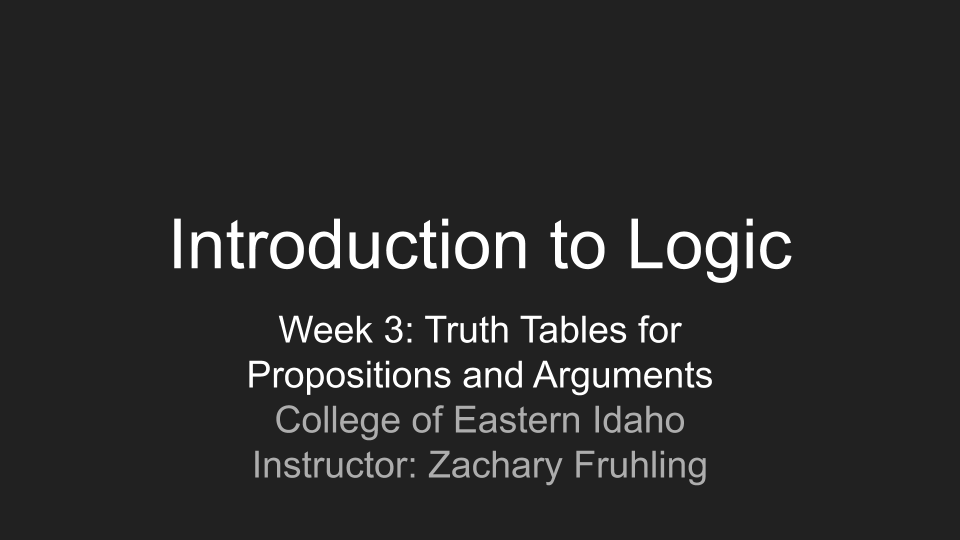Don't Live Life in the Middle; Take It to the Extremes!
Some years ago I was going through a rough time when a very well-intentioned person, whom I respected, told me that I should try to live more “in the middle.” I had been bouncing back and forth reactively between extremes, causing myself much stress along the way. This person’s advice seemed appropriate at the time; living in the extremes can and does cause quite a bit of stress, challenge, and even hardship.
Yet, living in the middle has never struck me as the right way to go about life. Sure, you can avoid the pitfalls of life by living “in the middle,” but you also miss out on so much human potential for greatness—in accomplishments, in experiences, in sensations, and in authenticity—if you become content to live life in the middle instead of aiming high and setting your sights on the highest mountaintops.
Ramit Sethi, author of the best-selling personal finance book I Will Teach You To Be Rich and one of my favorite non-philosophy writers, who is a fountain of practical wisdom about living a worthwhile, rich, and meaningful life (high praise from a philosopher like me!), recently asked the following question in his email newsletter:
“Why do your parents push you to be mediocre?” (Ramit Sethi, iwillteachyoutoberich.com)
The answer to this question, obviously, is that our parents fear the worst and want us to avoid the pitfalls in life, which matters more to them than what their children actually accomplish in life. (It would be a screwed up world if our parents loved us only if we achieved greatness!) Unfortunately, however, most of the advice we receive from others about how to approach life is of the same variety: don’t be too extreme, aim for the middle. This advice is nothing new. Even Aristotle, in his Nicomachean Ethics, advised people to avoid the vices of excess (and deficiency) by aiming for the “golden mean” (i.e., “golden average”)—which sounds so noble in those lofty, almost dazzling, “golden” terms.
This push toward averageness comes at us from many different directions: from our parents, our family and friends, our religious leaders (pushing people to be average makes them easier to control and manipulate, obviously), our politicians, and, sadly, even our teachers—despite their claims to the contrary about pushing their students toward greatness. And most people soak up the terrible advice they receive, from these and countless other sources, like a sponge.
Rare is the person who tells their friends that they shouldn’t settle for average—that they really aren’t okay just as they are and that they can do better. I try to take every opportunity to push my own students in this way, albeit out of genuine teacherly affection and goodwill. And if students don’t like being pushed, too bad! I know better than they do what’s good for them, even better than their other teachers, administrators, their parents, family, and friends. I see the true potential for human greatness and authenticity in each one of them, and I will go to war with anyone who pushes them to settle for an average life “in the middle,” from Aristotle to their pastor to the teacher in the classroom next door.
I’m in good company—alongside Ramit Sethi and even Friedrich Nietzsche, who detested the cultural push toward averageness seen in Christianity and almost all forms of Western morality, whether religious or philosophical. According to Nietzsche, we “modern” and “civilized” humans have made the martyrdom of being average (of being meek, mild, and thankful for what scraps we’ve been given in life) into something supposedly noble, holy, praiseworthy, and moral. Only the so-called “worldy” push and push and want for more than they already have, according to most Christian faithful. But those who strive for greatness are always hungry.
Steve Jobs, the cofounder of Apple, once said to “Stay hungry. Stay foolish.” quoting the last edition of the Whole Earth Catalog, in his well-known 2005 commencement address to graduating students at Stanford University. Staying hungry for more than you are is the only way to achieve greatness, the only way to bring about change, and the only way to achieve genuine happiness, not the pathetic shadow of happiness most people live in because of all the bad advice they’ve received about staying “in the middle,” being content with who they are and what they have, and aiming for average instead of continuing to push through the struggles of life toward greatness.
The only solution is to know yourself (“Know thyself,” as Socrates once said!) well enough to know who you really are, what you really want, what you hope to achieve or obtain, and to know it so well that you set your sights on it with every fiber of your being, and to make yourself ready and willing to push through every obstacle the world will throw at you along the way, and ready to ignore every piece of bad advice you receive from your loved ones and so-called “teachers,” “mentors,” “advisors,” and “counselors,” however well-intentioned the bad advice may be. If you settle for what you don’t have out of some facade of nobility, you will never push yourself to achieve what you might achieve, or to take the necessary steps to find and finally have the things that will make you truly happily, not just averagely happy.
Sure, living life “in the middle” might get you out of whatever emotional rut you are stuck in, but living “in the middle” won’t give you the tenacity, fortitude, motivation, or compulsiveness necessary to push and push and push, pressing on and then pushing yourself some more, out of the present and into the future you might build for yourself if (again, if) you don’t lose sight of the mountaintops you once glimpsed for yourself and your own life. Let other, lesser, mediocre people stay in the middle and settle for average if they choose, but push yourself further and lift yourself higher than anyone ever thought possible, for lack of imagination or because of the bad advice you wisely ignored but they foolishly chose to accept. Press on, and don’t look back out of fear—lest your life end up as an unhappy pillar of salt, like Lot’s pitiable wife in the book of Genesis, to bend a Biblical metaphor to my own whims and purposes (so irreverent of me!).
There is a fine line between serious philosophy and pop psychology, but pressing on toward the things that are uniquely you, and calling out people everywhere—from parents to teachers to pastors to philosophers—who dole out only mediocrity and averageness, is as Nietzschean in spirit as anything Nietzsche himself ever wrote. What’s the point of wanting if you don’t intend to have? What’s the point of seeking if you don’t intend to find? What’s the point of loving if you don’t love with reckless abandon and lose yourself in a torrent of passion and desire with your lover? What’s the point of knowing if you don’t become master of all you touch, bending and stretching, shaping and molding reality into the ideals you hold most dear? What’s the point of having hands with which to build and feet with which to climb if you don’t intend to build the tallest pyramid or scale the highest mountain in front of you, and immediately set your sights on an even higher mountain to climb after that scaling the first one? What’s the point of living at all if you live your life with one foot already in the grave? And yet so many “average” people have an early death mask already imprinted on their faces, a death of spirit, no matter how long their tragic, forgettable lives may actually be.
If Nietzsche was a prophet of the philosophers of the future, I’m the one he prophesied about! And I will strive for greatness with every fiber of my being, dragging and pushing and pressing myself and my students, and anyone else with ears to hear, to see the greatness and true nobility in themselves that I see clearly but they only glimpse in shadows, still lurking in the darkness of a quasi-Platonic cave that their parents, priests, teachers, psychologists, school counselors, and, yes, even philosophers have forced them into, claiming to spread illumination but only forcing them deeper into darkness of averageness and farther from the mountaintops of true greatness, individuality, and strength of character lying dormant within.
Yes, the gloves are off. And this is an indictment—of mediocrity and averageness everywhere: in our homes and families, in our pitiable educational system, in our government, in our religious meeting halls, in our classrooms and boardrooms, but mostly in our own heads and hearts, desperately in need of purging of the garbage advice and mediocre visions of human life that we’ve been spoon-fed every waking moment of our lives and seemingly from every source, even from those who ought to know better.
If Nietzsche was a wake-up call for humanity, I am the blast siren, not for myself to be heard, but for my students and for people in every corner of the Earth, from now until humanity’s final gasping breath, to begin to hear, and finally listen to, themselves.







